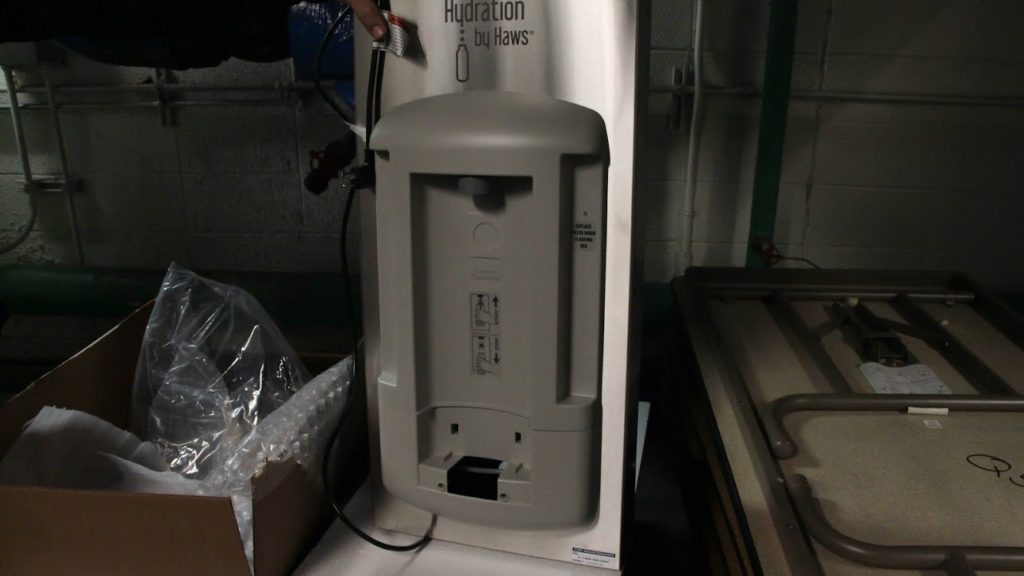
By Yuri Choi, Staff Writer
Recently, Assistant Principal Ellen Fee won a grant from the Filter for the Future Grant Program. Funded by a collaboration between Brita and the Alliance for a Healthier Generation, this program aims to help the environment by reducing the amount of plastic thrown out through the promotion of reusable bottles. The program provided THHS funding for the installation of hydration stations on the first, fourth, fifth, and sixth floors. The stations have been delivered to THHS, and are awaiting installation. Custodian Gary Viola is in charge of installation and will be working on a plan to put them in.
The Filter for the Future Grant Program provided a portion of their $140,000 grant funds from the Alliance for a Healthier Generation for the purchase of these hydration stations.
The stations will provide a more reliable source of water and “will reduce the need to bring heavy filled water bottles from home,” stated Ms. Fee. According to Brita, one hydration station will be able to “reduce as many as 36,000 plastic bottles a year,” a start to the 39 billion bottles consumed yearly by Americans, a majority of which go unrecycled.
The hydration stations will also “help encourage students to bring a reusable bottle instead of purchasing water,” said Coordinator of Student Activities Sarah Loew. Sophomore Charlene Lee, president of the Save Planet Earth club, said, “B y having accessible stations that provide clean water to students, it will encourage people to use reusable water bottles in exchange of costly, single-use plastic bottles from vending machines.”
THHS sought an alternative to the current water fountains because of students’ reluctance to drink from them. Sophomore Fabiha Samiha said, “I’m always cautious about the potential lead in the water, and so, I refrain from using [school water fountains].” She added that her friends also frequently purchase bottled water instead of drinking from the fountains.
A national EPA analysis between 2012 and 2015 showed that about 350 schools failed lead tests nearly a total of 470 times. According to Ms. Fee, at Townsend Harris, 25 out of over one hundred faucets contained amounts of lead superseding the safe amount of 15 ppb of lead. The kitchen’s cold water faucet had about 2,800 ppb of lead, while most other faucets contained anywhere from 90 to 300 ppb of lead.
In order to counter this problem, the custodial staff began eliminating stagnant water in pipes through scheduled flushing of water systems. While the school has been assured that the drinking water is safe, many community members are still wary.
In THHS, an increase in the costs to maintain appliances such as water coolers for water dispensers proved to be a problem. With the new hydration stations, students and staff will be able to obtain water that they can be confident is safe and clean.
The new stations, along with the recently distributed S’well bottles, help demonstrate the school’s contributions and efforts towards our environment and community.
“If we continue to push our school to make beneficial changes like these, we may soon be able to proudly call ourselves an eco-friendly school,” Charlene concluded.



























